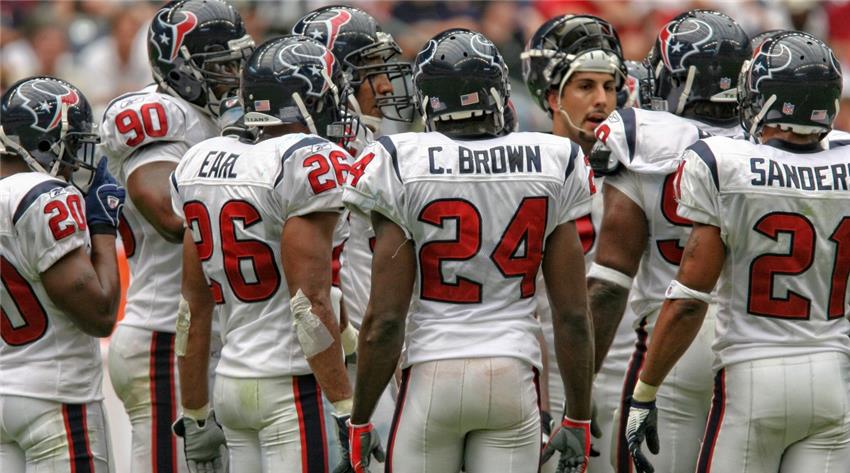
The Impact of New Rule Changes on NFL Game Dynamics
When watching an NFL game, it's easy to focus solely on the dazzling plays, the touchdowns, and the spirited tackles. However, the true essence of the game lies in its rulebook, with every stipulation and regulation intricately shaping the flow and outcome of matches.
As the NFL continues to evolve, so do its rules. The objective? To make the game safer, fairer, and more engaging for both players and fans alike. This article will explore how recent rule changes have significantly impacted NFL game dynamics.
The Reason for Change
First and foremost, it's essential to understand why the NFL often introduces new rules or modifies existing ones. Primarily, the changes aim to:
- Enhance Player Safety: As we learn more about the physical toll football takes on athletes, particularly concerning concussions, the NFL aims to reduce injuries and ensure players' longevity.
- Promote Fair Play: Rules are adjusted to ensure competitions remain balanced and teams don’t get an undue advantage.
- Improve Game Flow and Enjoyment: Some rule changes aim to make the game more fluid, reduce downtime, and enhance the overall viewing experience for fans.
Notable Rule Changes and Their Impact
Safety First: Helmet-to-Helmet Hits
The NFL has intensified its crackdown on helmet-to-helmet hits, leading to increased penalties and even ejections for violations. This emphasis stems from the league's commitment to player safety and a growing understanding of the long-term health risks associated with concussions and other head injuries.
By penalizing these dangerous plays more severely, the NFL hopes to encourage safer playing techniques and reduce the risk of severe injuries, ensuring that players can enjoy longer and healthier careers both on and off the field.
Impact:
- Players Adjust: Athletes are now more cautious about their tackling technique, focusing on using their shoulders more than their heads.
- Game Flow: With stricter officiating, games might experience more interruptions due to penalty reviews. However, this ensures a safer environment for players.
Reimagining the Pass Interference
Recent seasons saw modifications in how pass interferences, both offensive and defensive, are reviewed and challenged. These adjustments are part of the NFL's ongoing efforts to ensure game integrity and fairness.
Pass interference calls, given their potential to drastically shift field position and momentum, have always been a contentious aspect of the game. By refining the review process, the league aims to offer clearer guidelines for officials and reduce controversies, thus fostering trust among teams, players, and fans.
Impact:
- Strategic Challenges: Coaches now need to be more strategic about challenging pass interference calls, weighing the value of potentially overturning a call against the risk of losing a timeout.
- Clarity for Fans: While it can sometimes slow the game down, reviewing these plays provides clarity and ensures significant yardage penalties are accurate.
Revamping the Kickoff
Kickoffs have been redefined, with players no longer getting a running start, and changes in alignment restrictions to promote safety. This transformation in the kickoff procedure is a proactive measure by the NFL to address concerns about the high-speed collisions traditionally associated with this phase of the game.
Such collisions often led to injuries, given the momentum players built with a running start. By altering the kickoff mechanics, the NFL is striving to retain the excitement of this play while significantly reducing its inherent risks, ensuring a safer environment for players while still delivering thrilling moments for fans.
Impact:
- Reduction in High-speed Collisions: This rule minimizes dangerous high-speed collisions, making the game safer for kickoff teams.
- New Strategies: Teams have been experimenting with different kickoff strategies, leading to an evolving dynamic in special teams play.
Fan Experience: How Rule Changes Affect Viewers
Every rule change in the NFL not only alters how the game is played but also how it's perceived and enjoyed by fans. These changes can influence the pacing, strategy, and drama of the game, directly affecting the spectator experience. For fans, it's not just about witnessing athletic prowess on the field; it's about engaging with a story that unfolds play by play.
As rules evolve, they can usher in new narratives, strategies, and moments of suspense, ensuring that the sport remains fresh and captivating for its audience, season after season. This dynamic relationship between rule changes and fan experience underscores the importance of staying informed and adaptable as the game continues to grow and transform.
- More Action, Fewer Stops: Rules that make the game flow more smoothly or reduce the chances of injuries mean fans spend more time watching plays unfold and less time waiting during game stoppages.
- Education is Key: With new rules come new terminologies and game nuances. Broadcasters now often include explanations and insights into rule changes, ensuring fans stay informed and engaged.
- Debates and Discussions: Every rule change sparks discussions, debates, and opinions among fans, adding another layer of engagement to the sport.
Betting Dynamics: New Rules and Your Wager
Every rule change in the NFL not only alters how the game is played but also how it's perceived and enjoyed by fans. These shifts can sometimes lead to initial confusion or disagreement among the fanbase.
However, as fans acclimate to these changes, they often discover new dimensions of the game to appreciate and analyze. Enhanced safety rules, for example, may highlight the finesse and technique of players over sheer physicality.
Conversely, alterations in game pacing can provide fans with more heart-stopping moments or strategic plays to discuss post-game. In essence, while the core of football remains unchanged, the nuances introduced by rule changes keep the conversation lively, the debates intense, and the passion for the sport ever-burning.
Implications for Sports Betting
- Adjusted Odds: As rules change, so do team strategies and player behaviors. Oddsmakers are keenly aware of this and adjust their odds based on how they perceive a rule will impact game outcomes. For bettors, this means staying updated with rule changes and understanding their broader implications can be key to placing winning bets.
- In-Game Betting: Live or in-game betting, where wagers are placed during the game, can be especially impacted by rule changes. For instance, with stricter helmet-to-helmet hit regulations, there might be more interruptions due to reviews, potentially shifting game momentum. As a result, many turn to platforms offering free NFL picks to get real-time insights and recommendations. Bettors need to be nimble and aware of these dynamics to make informed decisions.
- Player Performance Bets: Rule changes can influence individual player performances. A rule that, for example, offers more protection to quarterbacks might lead to more passing yards in a game, affecting over/under bets for QB performances.
An Ever-Evolving Game
Football, like any other sport, must adapt and evolve. Whether it's to ensure player safety, promote fair competition, or enhance fan experience, rule changes are integral to the game's growth and sustainability.
As fans, while it might take some time to adjust to these new rules and understand their implications fully, these changes often lead to a more exciting, safe, and fair game. So, the next time you tune into an NFL game, take a moment to appreciate the intricacies of the rulebook and the strategic depth they add to every kick, pass, and touchdown.
